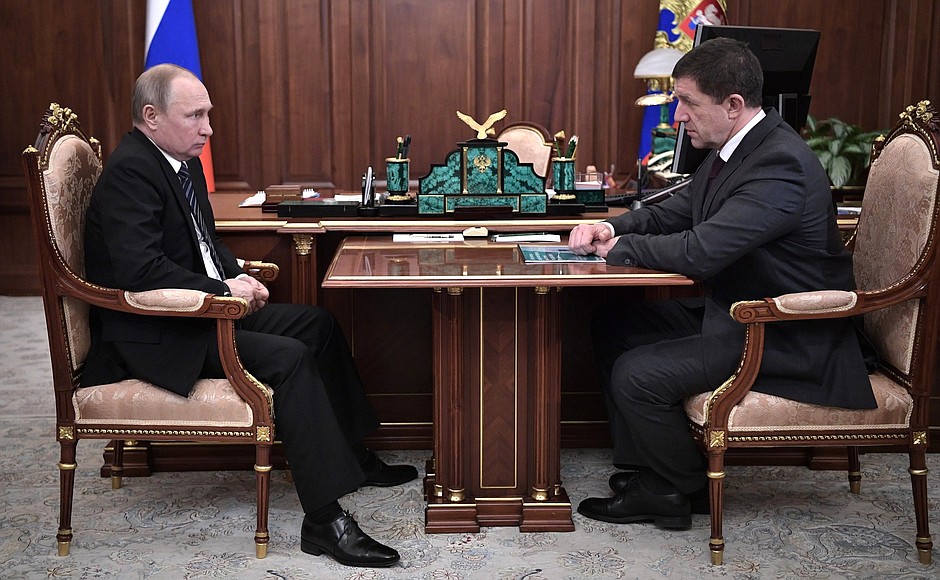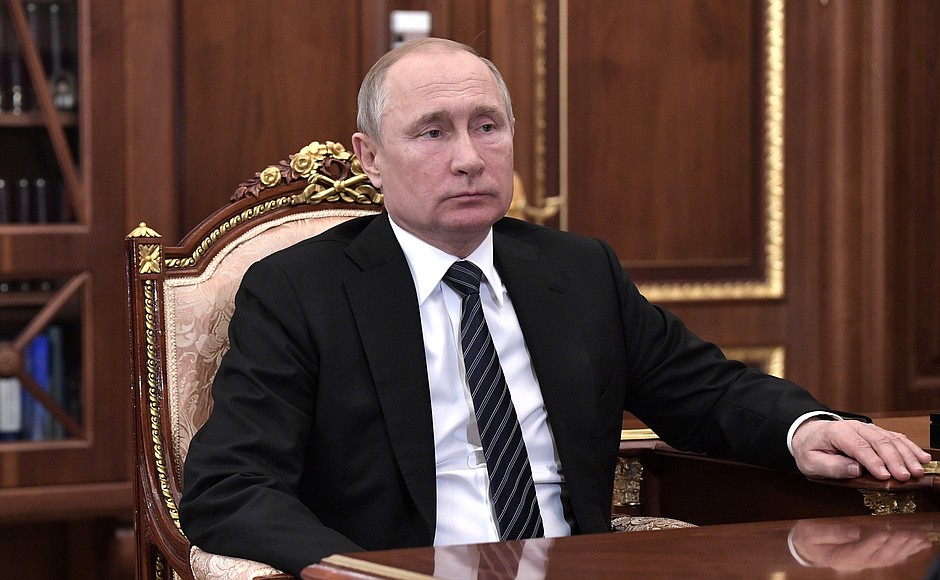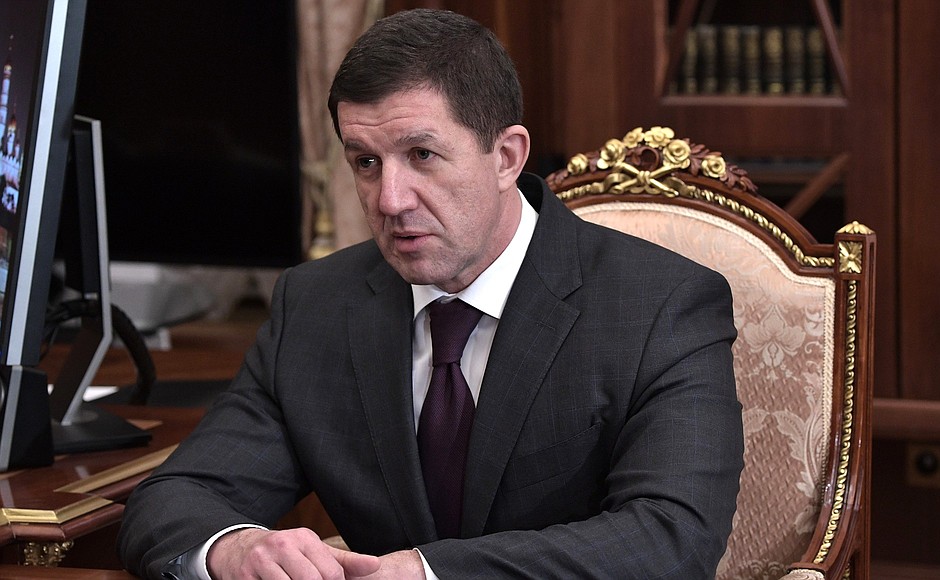President of Russia Vladimir Putin: Good afternoon. Let us start with last year’s performance results.
Rostelecom President Mikhail Oseyevsky: Mr President, last year the company started implementing the new five-year strategy that will transform Rostelecom into a digital company working for the benefit of the population, business and the government alike. That is why we are now switching from the traditional services provided by telecom companies, such as transmission and storage of data, to a whole complex of modern digital services, while staying focused on developing the basic infrastructure.
Last year, we used our own investment programme to wire up a total of more than one million new apartments and private homes so that people could make use of all the latest improvements right away. We are continuing work on the programme to provide internet access to remote communities. Last year, in accordance with your instructions, we laid an undersea cable to the Kuril Islands, and today, residents of the three islands of Iturup, Kunashir and Shikotan can access the same services as Sakhalin, and, importantly, at the same rates. We are now actively working on these islands, and planning to complete the process of connecting homes, social facilities and businesses to the internet during the first quarter. This is, without a doubt, of great importance to people living so far away from the centre.
In accordance with your instructions, we have completed the provision of internet access to medical facilities (more than 9,000 of them). We can see that this was really necessary. Telecommunications and telemedicine services are developing rapidly; there is technology for remote consultations, and much more. Now we are in discussion with the Government about a programme that will provide a high-speed internet connection to schools.
Vladimir Putin: How much will it cost?
Mikhail Oseyevsky: We can connect 40,000 schools at a cost of 40 billion rubles, with traffic paid for until 2025.
Vladimir Putin: What are your priority projects for 2019, 2020 and 2021, for the next three years?
Mikhail Oseyevsky: We are still convinced that we must finish the internet coverage programme because it is the basic environment for the development of all digital technologies, for individuals, businesses and the government. And this project, a significant part of which has already been carried out, needs to be finished, of course, because schools have to some extent been neglected. There are modern electronic content solutions which we are discussing with the Ministry of Education but our priority remains to provide internet coverage to schools. It is very important to give children in remote villages an opportunity to access modern solutions and be able to communicate with teachers.
The second priority area is, of course, the further development of digital technology in the state. One of the positive examples of this is a digital technology development programme for the prosecution service. The programme facilitates the provision of more than 50,000 modern workstations in 3,000 public prosecution offices across the country. The Prosecutor General has strongly supported this project. We are moving really fast. By 2021, a vast amount of work, including document storage and transfer, will be carried out digitally. Of course, this is very important for a country like Russia.
We are working on cybersecurity projects which are in great demand by both businesses and the government. There are several hundred people in the company dealing with these issues. We have several cybersecurity centres that operate 24/7 to monitor the current situation and respond rapidly to cyber threats.
Vladimir Putin: What do you think is important in this industry but not exactly appealing to businesses? Which areas require support from the government? What are the key areas?
Mikhail Oseyevsky: Education. With regard to cybersecurity, it is a very popular area both for us and for the country in general. Last year, we even held a national competition [Cyberchallenge Online Olympiad]. More than 4,000 children took part and the winners went to study at Sirius. We will continue this practice.
Of course, since technology is changing very fast, it is difficult for higher education to catch up with us and, apparently, major Russian companies have to play a big role in training professionals for the industry. In many cases, second- and third-year students are already highly qualified and they need to apply their knowledge and skills. Of course, we need to find new formats so that eighteen-year-old students can continue to study for their bachelor degrees while working at the same time. This is possible. We can see that they are very proactive and want to realise their professional potential.
Vladimir Putin: Thank you.
<…>


